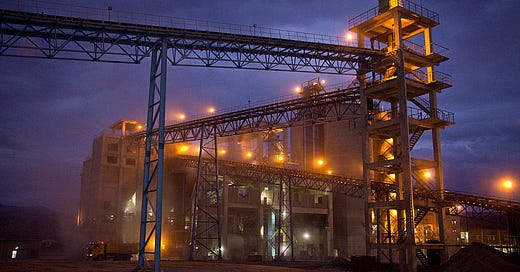
Good Morning from Mozambique!
The African Investment Risk Debate: Are Investors Overreacting or Underinformed?
Gagan Gupta, a firm believer in Africa's potential, dropped a bombshell at a recent investor event according to The Economist: "The concept of risk is completely invented to ensure that investment doesn't come to Africa." Mic drop
His statement echoes the sentiment of many African policymakers and advisors who argue that the continent pays a higher cost of capital than necessary due to investors' skewed risk perceptions. They believe that global rating agencies are plagued by bias, leading to unfair risk profiles for African countries.
This debate is more than just academic. With government debt across sub-Saharan Africa reaching 60% of GDP in 2023 and three countries defaulting since 2020, the continent's debt burden is indeed a problem. Managing this load would be easier if debt markets were deep and efficient, but stagnant debt and equity inflows have made it challenging.
And so the UN estimates that Africa faces a $100 billion infrastructure financing gap each year. Foreign direct investment inflows are also lackluster, accounting for just 3% of the global total and 2% of GDP in 2023. While investors undoubtedly face risks such as sovereign default, currency devaluation, and corporate mismanagement, critics argue that there's a mismatch between perceived and actual risks.
At first glance, risk perceptions for African debt and equities seem high. The average credit rating is near an all-time low, and only Namibia and South Africa have ever received an investment-grade rating for their bonds. African countries also borrow at consistently higher interest rates than other emerging markets.
However, some argue that these figures don't fairly reflect the actual risks. Moody's reports that default rates on infrastructure projects in Africa are actually lower than in Asia and Latin America. And the average return on equity among the 500 most valuable listed firms on the continent is a solid 15%, better than what the stingy valuations imply.
Here’s what the IMF has to say: It studied government bonds in 89 countries since 2003 and concluded that while sub-Saharan African states do face higher interest rates, this "Africa premium" is explained by structural factors such as budget transparency, informal sector size, financial sector and stock market sophistication and depth, and regulatory quality.
Thus, at the heart of the debate is the lack of adequate information, and addressing this informational inefficiency is crucial, especially for companies and investors who base decisions on granular detail. In the end, the more data investors and firms have, the more likely it is that risk and returns will be priced accurately.
Time to value Africa correctly and unlock its full potential.
Quote of the Day
Co-founder of Rovingheights Bookstore in Nigeria, Tobi Eyinade, disagrees with the belief that Africans do not read:
“Rovingheights would not be here after nine years if that sentiment holds true. People often say Africans don’t read, yet we have managed to build a thriving book business despite the daunting challenges. Africans do read.”
Find out what’s it’s like running a bookshop in Africa, including the challenges, opportunities, and what Eyinade is most looking forward to here.
Sierra Leone's Rice Dependency

Sierra Leone: the land where rice is more than just a staple. If your meal doesn't include it, you might as well be eating air. But as prices skyrocket, folks are ditching other food just to get their hands on those precious grains.
And guess what? 83% of the population is now food insecure, according to the U.N.'s World Food Program.
So, what's the deal? Well, Sierra Leone is seriously dependent on imported rice. We're talking 35% of the country's rice supply, costing $200 million in foreign currency every year. That's enough to make any economist's head spin.
But here's the thingr: West Africa has a long history of growing rice, and Sierra Leone has some of the best conditions for it. So, why the import dependence? Experts point to a lack of investment in agriculture, a booming population, and cheap rice imports from Asia. Agriculture Minister Henry Kpaka Musa is particularly pointing fingers at the International Monetary Fund for pressuring Sierra Leone to stop investing in agriculture back in the 80s. It's a perfect storm of rice-related woes.
But there’s a plan: Minister Musa and President Julius Bio are aiming to make Sierra Leone a rice-exporting powerhouse once again. They've raised over $620 million from global development banks to work towards food self-sufficiency, with a focus on – you guessed it…
However, not everyone's convinced. NGOs and academics warn that this plan might favor big agribusiness and large-scale farms, leaving the country's 5 million smallholder farms in the dust. It's a tale as old as time: the little guy gets the short end of the stick.
Still, Minister Musa aims to improve roads, electricity supply, and seed, fertiliser, pesticide and capital access to benefit smallholder farms.
Food for Thought
“No one knows the messenger of death.”
— Sierra Leone Proverb





If the interest rates for loans are high for most African Countries, diversifying and building up the industrial sector is difficult to manage for the governments. This plays into the hands of the mining companies and agribusiness that prefer to extract and export minerals and primary resources without processing them on the continent. So the potential added value of the ressources is exported as well.